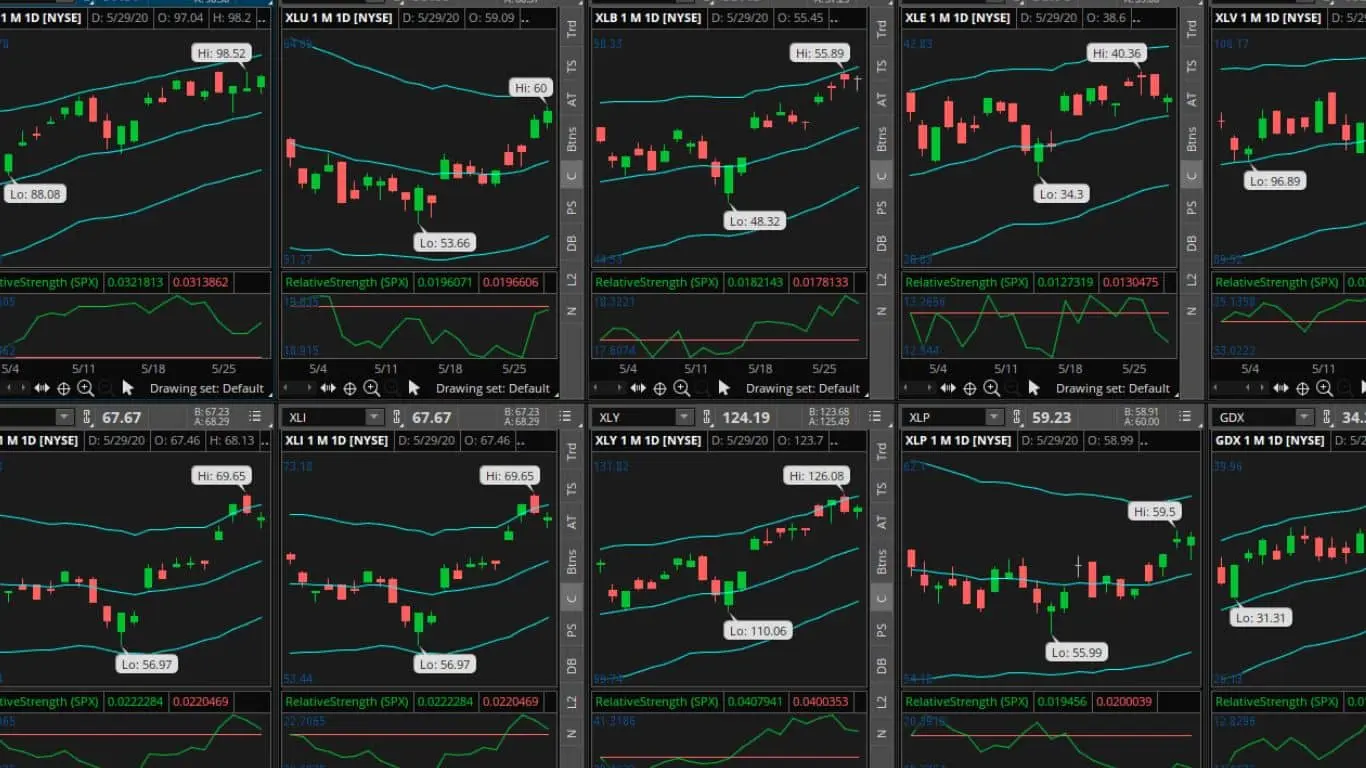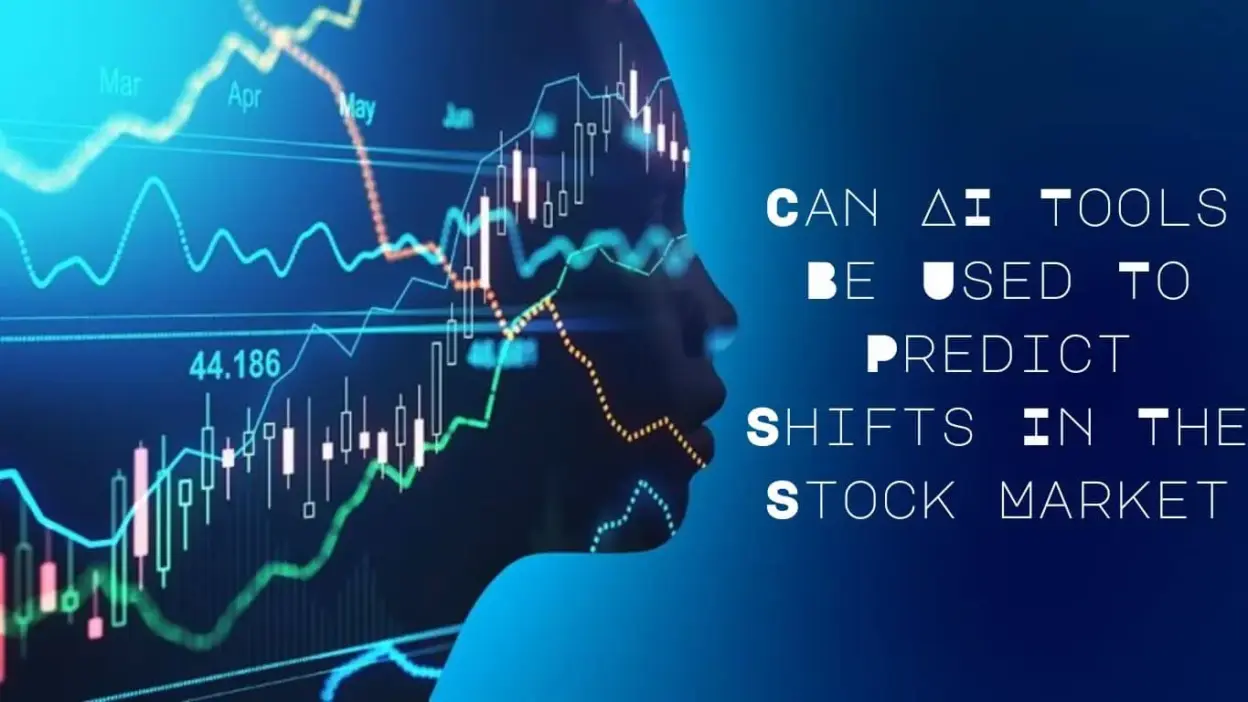Artificial Intelligence (AI) has revolutionized various industries, from healthcare to automotive. In the financial sector, AI tools are increasingly being used to predict shifts in the stock market. These tools analyze vast amounts of data, identify patterns, and generate insights that can be used to make informed trading decisions. But the question is how can AI tools be used to predict shifts in the stock market? So, let’s explore the ways in which AI can be utilized to predict stock market movements.
How Can AI Tools Be Used To Predict Shifts In The Stock Market?
Sentiment Analysis
One of the most exciting applications of AI in stock market predictions is sentiment analysis. By analyzing News articles, social media posts, and other textual data, AI tools can gauge the overall sentiment of the market and provide insights into how stock prices may be affected. Sentiment analysis involves processing large volumes of unstructured data to determine the prevailing mood or opinion about a particular stock or the market as a whole.
For instance, if a major News outlet publishes a positive article about a company’s financial performance, this can result in a positive sentiment towards the stock, potentially driving its price up. Conversely, negative news can lead to a drop in stock prices. AI tools can analyze such data in real-time and predict potential shifts in the stock market, allowing traders to make informed decisions.
Technical Analysis

Technical analysis involves examining historical stock prices and trading volumes to identify patterns that can indicate future price movements. AI algorithms are particularly well-suited for this task, as they can process large datasets and identify complex patterns that may not be apparent to human analysts.
By analyzing historical data, AI tools can generate insights into the factors that influence stock prices, such as support and resistance levels, moving averages, and trend lines. This information can be used to predict future price movements and identify potential trading opportunities.
Fundamental Analysis
It involves examining the financial health of a company by analyzing its financial statements, market position, and other relevant data. This type of analysis requires a thorough understanding of financial metrics and the ability to interpret complex data. AI tools can simplify this process by automating the analysis of financial statements and other fundamental data.
Machine learning algorithms can be used to assess the financial health of a company and predict its future stock price movements. For instance, if a company has strong financial fundamentals, such as high revenue growth and low debt levels, this can be a positive sign for its future stock performance. Conversely, poor financial fundamentals can indicate potential risks and lead to a decline in stock prices.
Time Series Analysis

Time series analysis involves analyzing data points that are ordered in time to identify trends and patterns. In the context of the stock market, time series analysis can be used to analyze historical stock prices and trading volumes to identify cyclical patterns and trends that may indicate future price movements.
AI tools can use advanced algorithms to analyze time series data and generate predictions about future stock prices. By identifying patterns in historical data, AI tools can provide valuable insights into the factors that influence stock prices and help traders make informed decisions.
Machine Learning and Predictive Modeling
Another factor which may help is Machine learning algorithms. Such as neural networks and decision trees, can be trained on historical data to make predictions about future stock price movements. These algorithms can analyze large datasets and identify complex patterns that may not be apparent to human analysts.
For instance, neural networks can be used to analyze historical stock prices and trading volumes to identify patterns that can indicate future price movements. Once the algorithm has been trained on historical data, it can make predictions about future stock prices, providing valuable insights for traders.
Algorithmic Trading

Algorithmic trading involves using AI algorithms to develop trading strategies that can automatically execute trades based on predefined criteria. These algorithms can analyze market data in real-time and make trading decisions based on predefined rules and strategies.
For instance, an algorithmic trading strategy could be designed to buy a particular stock when its price drops to a certain level and sell it when the price rises above a predetermined threshold. This approach allows traders to take advantage of market opportunities without having to constantly monitor stock prices and make manual trades.
Conclusion
AI tools are revolutionizing the way traders analyze data and make trading decisions. By leveraging advanced algorithms and machine learning techniques, AI tools can provide valuable insights into the factors that influence stock prices and help traders make informed decisions. While AI tools are not without their challenges and limitations, their potential to transform the stock market is undeniable.
AI tools have the potential to revolutionize the way traders analyze data and make trading decisions. By leveraging advanced algorithms and machine learning techniques, AI tools can provide valuable insights into the factors that influence stock prices, enabling traders to make informed decisions and potentially achieve better trading outcomes.
Also Read: Rise of AI in Content Generation, Pros and Cons




